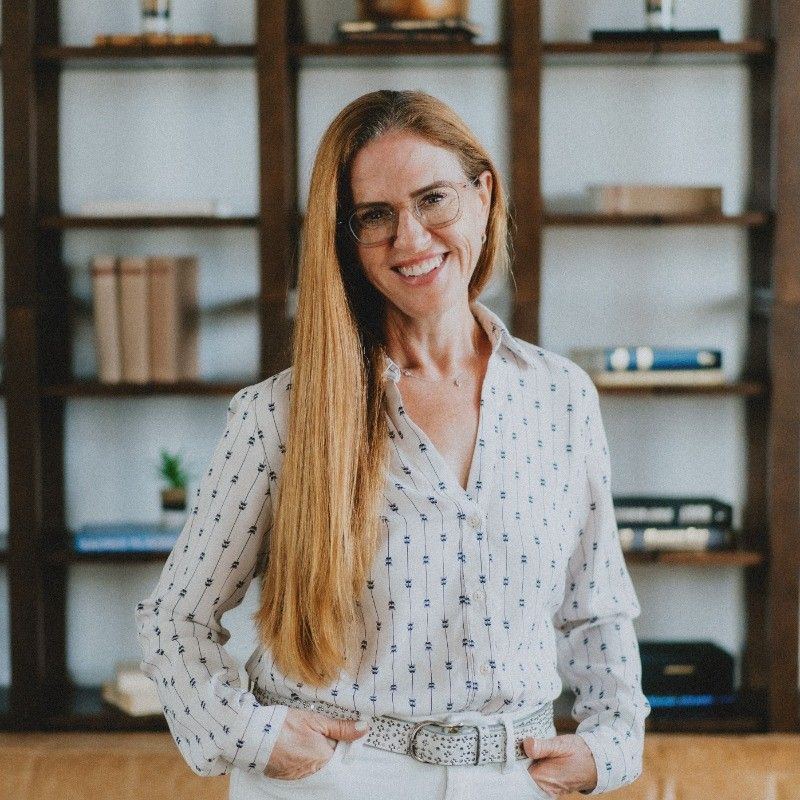How to Help a Friend Going Through Complicated Grief
By Autumn
5 minutes
Overview
Grief is a natural, universal response to loss, yet no one experiences it the same way. For most people, grief heals with time. But for others, the pain doesn’t ease but deepens, becoming harder to carry and manage over time. This is what mental health professionals call complicated grief, also known as prolonged grief disorder.
For friends and loved ones of bereaved people, it can be difficult to know what to do or say when someone is hurting deeply. You might want to help but worry about saying the wrong thing, or you might feel helpless as their grief lingers month after month. Understanding what complicated grief looks like and learning how to respond can make a big difference.
Understanding Complicated Grief
Complicated grief is an on-going, intense form of mourning that disrupts daily life. While grief has no fixed timeline, most people eventually find themselves ready to take small steps back into everyday life. However, someone experiencing complicated grief may describe feeling as though the loss happened yesterday, even months or years later. They may avoid reminders of their loved one entirely or find themselves unable to stop thinking about them. Over time, this kind of grief can lead to isolation, depression, anxiety, and physical symptoms such as fatigue or insomnia. Recognizing signs of complicated grief is the first step in offering meaningful support.
Behaviors to Look For
You may start to notice that your friend’s grief doesn’t seem to change much over time. They might struggle to get through daily tasks, lose interest in hobbies, or withdraw from people who care about them. Sometimes, they may express guilt for surviving or an inability to imagine life without the person they lost.
Other signs can include emotional pain when reminded of their loved one, a constant longing or preoccupation with the loss, and a sense that life no longer has purpose. If these feelings remain intense for over a year or start interfering with everyday life, it may be a sign of complicated grief. Grief looks different for everyone and doesn’t follow one straight path. What matters most is to stay patient and compassionate. Sometimes, small gestures like noticing and showing up for others can make more of a difference than you realize.
What Not to Say
Even if you have good intentions, certain words or phrases can unintentionally hurt someone suffering from grief. Phrases like “They’re in a better place” or “Everything happens for a reason” may be meant to comfort, but can actually minimize the reality of their pain. Similarly, urging someone to “move on” or “stay strong” can feel invalidating when they are still dealing with loss.
It’s best to avoid comparisons, such as “I know how you feel,” because everyone experiences loss differently. Instead of offering advice, focus on listening. Simply being present and acknowledging that their grief is real and valid can be more healing than any attempt to fix it.
How to Offer Gentle Support
Supporting a friend through complicated grief takes patience and compassion. Start by showing up consistently, whether that’s through a text, a meal, or a visit. Your presence reminds them they are not alone, even if they aren’t ready to talk.
Let them lead the pace. Some days, they may want to share memories of their loved one; other days, they might not want to talk about the loss at all. Both are okay, and neither should be pressured.
Instead of offering solutions, focus on acknowledging their feelings. You might say things like “I can see how much you miss them,” or “It sounds like this has been really hard for you.” These small acknowledgments show understanding and recognition of their grief.
Encouraging Professional Help Without Pushing
One of the hardest parts of supporting someone with complicated grief is knowing when and how to suggest therapy or a support group. It’s a delicate balance: you want to offer help without making them feel judged for how they’re grieving.
A gentle way to approach it might be saying something like, “I’ve read that grief counselling can help when things feel overwhelming. If you want, I can help you look into someone to talk to?” This phrasing emphasizes care instead of making them feel like something’s wrong.
If they’re not ready for that step yet, that’s completely okay as well. Don’t take it personally, and continue to be a steady, compassionate presence in their life. Often, people struggling with complicated grief need time to reach the point where they are ready for help. Your role is to keep the door open and stay patient until they feel ready to take the next step.
The Role of Grief Counseling & Support Groups
For some, seeing a grief counselor or joining a support group can be life-changing. Connecting with others who have experienced similar loss can reduce isolation and help normalize one's experience. Many grief therapists and support groups are designed specifically for those navigating prolonged grief, offering a safe space to express feelings, share memories, and find comfort.
If your friend seems open to the idea, you could offer to help them research local groups or even attend the first session together. Sometimes, the idea of not facing it alone makes seeking help less intimidating.
Caring for Yourself While Supporting Someone in Grief
Supporting a friend through grief can be emotionally taxing, and it’s natural to feel frustrated, sad, or even powerless at times. To stay grounded, it’s important to take time to care for yourself while supporting them. Maintain your own emotional balance by setting boundaries and seeking help for yourself if needed. Practicing self-care, such as taking breaks, journaling, or doing something restorative, can help give you the strength to continue showing up with empathy and patience. By taking care of yourself, you’re better able to be a reliable support system for your friend without losing your own balance in the process. Remember that you can be there for them, but their healing is something only they can do in their own time.
When to Seek Urgent Help
If your friend expresses hopelessness, talks about wanting to die, or shows signs of self-harm, take it seriously. Encourage them to reach out to a mental health professional immediately. If you or someone you know is struggling, dial 988 to talk to someone at the Suicide and Crisis Lifeline. Support is free, confidential, and available 24/7.
Conclusion: The Power of Compassionate Presence
Grief is complex, deeply personal, and often unpredictable. Helping a friend through it isn’t about finding the right words, but about being consistently present. Grief has no timetable, and healing is rarely linear. By recognizing the signs of prolonged sorrow early, offering steady support, and validating their feelings without judgment, you can help a friend feel seen and understood. Gently encouraging professional support when appropriate can provide additional guidance. At the same time, caring for yourself ensures you can continue to show up for others. Though helping a friend through complicated grief can feel overwhelming, your willingness to walk beside them will remind them that even in grief, they are not alone.
Find a Grief Counselor to Help
Supporting a friend with complicated grief can be difficult. Sometimes, the most helpful step is connecting them with a professional. Grief counselors are trained to recognize when someone is stuck, overwhelmed, or at risk of prolonged emotional distress. They provide a safe space to talk, process loss, and learn coping tools that go beyond what friends and family can offer.
Autumn has trusted mental health providers who can help. Contact a licensed grief counselors near you who specializes in loss, trauma, and complex bereavement. Contact us if you need any help.
Autumn has what you need to manage life after loss
Navigating life after a death and need more support? Contact us and we'll help for free.





